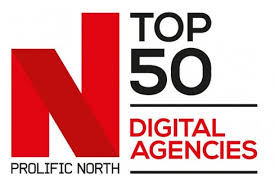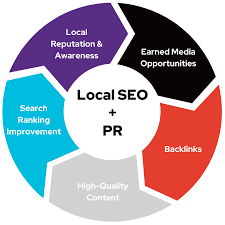The Power of Effective Communication
The Power of Effective Communication
Communication is a fundamental aspect of human interaction that plays a crucial role in both personal relationships and professional environments. Effective communication is the key to building strong connections, fostering understanding, and achieving success in various aspects of life.
In the business world, communication is essential for conveying information, sharing ideas, and collaborating with colleagues. Clear and concise communication can improve productivity, enhance teamwork, and drive innovation within an organisation. It enables employees to work together towards common goals and ensures that everyone is on the same page.
Effective communication also plays a vital role in customer relations. Businesses that communicate clearly and transparently with their customers are more likely to build trust and loyalty. By listening to customer feedback and addressing their concerns promptly, companies can enhance their reputation and create long-lasting relationships with their clientele.
Communication skills are not only important in face-to-face interactions but also in written communication. In today’s digital age, emails, social media posts, and other forms of online communication have become prevalent. It is crucial for individuals to be able to convey their messages clearly and professionally through written channels to avoid misunderstandings or misinterpretations.
Moreover, effective communication is essential for resolving conflicts and managing crises. By engaging in open dialogue, actively listening to different perspectives, and seeking common ground, individuals can navigate challenging situations with diplomacy and tact. Clear communication can help prevent misunderstandings from escalating into larger issues.
Overall, the power of effective communication cannot be overstated. Whether in personal relationships or professional settings, clear and empathetic communication lays the foundation for mutual understanding, trust, and collaboration. By honing our communication skills and being mindful of how we interact with others, we can foster positive connections and achieve our goals more effectively.
9 Benefits of Effective Communication in Organisations
- Enhances teamwork and collaboration within organisations.
- Facilitates the exchange of ideas and information.
- Strengthens relationships through effective interaction.
- Improves productivity by ensuring clarity in tasks and expectations.
- Builds trust and credibility with transparent communication.
- Helps resolve conflicts through open dialogue and understanding.
- Supports innovation by encouraging sharing of diverse perspectives.
- Enables better decision-making based on comprehensive communication.
- Enhances personal development by honing interpersonal skills.
Five Drawbacks of Ineffective Communication
- Miscommunication can lead to confusion and misunderstandings.
- Poor communication can result in decreased productivity and inefficiency.
- Lack of communication may cause rifts in relationships, both personal and professional.
- Ineffective communication can lead to missed opportunities for collaboration and innovation.
- Communication breakdowns can contribute to conflict escalation and unresolved issues.
Enhances teamwork and collaboration within organisations.
Effective communication enhances teamwork and collaboration within organisations by ensuring that all team members are aligned with the same goals and objectives. Clear communication fosters a sense of unity and shared purpose among team members, enabling them to work together seamlessly towards achieving common targets. By promoting open dialogue, active listening, and information sharing, good communication practices create a supportive environment where ideas can be freely exchanged, feedback can be constructively given and received, and collective efforts can be maximised for greater productivity and success.
Effective communication serves as a facilitator for the seamless exchange of ideas and information. By promoting clear and open dialogue, individuals can share their thoughts, insights, and knowledge with others, fostering collaboration and innovation. Through communication channels such as meetings, presentations, or written correspondence, ideas can be articulated, discussed, and refined to drive progress and problem-solving. This exchange of information not only enhances understanding among individuals but also cultivates a dynamic environment where creativity thrives and new solutions emerge.
Strengthens relationships through effective interaction.
Effective communication strengthens relationships by fostering meaningful interactions and promoting understanding between individuals. When people communicate openly and honestly, they are able to express their thoughts, feelings, and needs clearly, leading to deeper connections and mutual respect. By actively listening to one another and engaging in constructive dialogue, individuals can build trust, empathy, and rapport, ultimately enhancing the quality of their relationships. Strong communication skills enable people to navigate conflicts more effectively, resolve misunderstandings promptly, and maintain harmonious relationships based on mutual understanding and support.
Improves productivity by ensuring clarity in tasks and expectations.
Effective communication plays a crucial role in improving productivity by ensuring clarity in tasks and expectations. When team members have a clear understanding of their roles, responsibilities, and goals, they can work more efficiently towards achieving them. Clear communication helps to eliminate misunderstandings, reduces the likelihood of errors or duplication of efforts, and ensures that everyone is aligned on the objectives. By fostering transparency and providing clear guidance, effective communication streamlines workflows and empowers individuals to perform their tasks with confidence and purpose.
Builds trust and credibility with transparent communication.
Transparent communication plays a crucial role in building trust and credibility in any relationship or organisation. When individuals or businesses are open and honest in their communication, it fosters a sense of reliability and integrity. By sharing information openly, addressing concerns promptly, and being transparent about decisions and actions, trust is established between parties. This trust forms the foundation for strong relationships, whether with customers, colleagues, or stakeholders, leading to increased credibility and loyalty over time.
Helps resolve conflicts through open dialogue and understanding.
Effective communication plays a crucial role in conflict resolution by facilitating open dialogue and fostering mutual understanding. When individuals engage in honest and empathetic communication, they can address differences constructively, find common ground, and work towards resolving conflicts peacefully. By listening attentively to each other’s perspectives and expressing their own thoughts clearly, individuals can navigate disagreements with respect and empathy, ultimately strengthening relationships and promoting harmony.
Supports innovation by encouraging sharing of diverse perspectives.
Effective communication supports innovation by encouraging the sharing of diverse perspectives. When individuals feel comfortable expressing their unique ideas and viewpoints, it creates a fertile ground for creativity and problem-solving. By embracing different opinions and approaches, teams can explore new possibilities, challenge conventional thinking, and develop innovative solutions to complex challenges. This diversity of perspectives fosters a culture of innovation where creativity thrives, leading to breakthrough ideas and advancements in various fields.
Enables better decision-making based on comprehensive communication.
Comprehensive communication enables better decision-making by ensuring that all relevant information, perspectives, and insights are shared and considered. When individuals engage in open and transparent communication, they can gather a complete picture of a situation, leading to more informed decisions. By encouraging dialogue and sharing diverse viewpoints, comprehensive communication helps identify potential risks, opportunities, and alternative solutions that might otherwise be overlooked. This collaborative approach fosters a deeper understanding of complex issues and allows for strategic decision-making that aligns with the overarching goals and objectives of the organisation.
Enhances personal development by honing interpersonal skills.
Effective communication enhances personal development by honing interpersonal skills. When individuals engage in meaningful conversations, actively listen to others, and express their thoughts and emotions clearly, they not only build stronger relationships but also develop empathy, understanding, and emotional intelligence. By improving their interpersonal skills through communication, individuals can navigate social interactions with confidence, resolve conflicts peacefully, and cultivate a deeper sense of connection with those around them. This growth in interpersonal skills not only benefits personal relationships but also contributes to professional success and overall well-being.
Miscommunication can lead to confusion and misunderstandings.
Miscommunication within any context can result in confusion and misunderstandings, creating barriers to effective interaction and collaboration. When messages are unclear, incomplete, or misinterpreted, individuals may struggle to grasp the intended meaning, leading to discrepancies in expectations and actions. This lack of clarity can sow seeds of doubt, erode trust, and hinder progress towards shared goals. Addressing and rectifying instances of miscommunication is crucial to fostering productive relationships and ensuring that information is accurately conveyed and understood by all parties involved.
Poor communication can result in decreased productivity and inefficiency.
Poor communication within an organisation can have detrimental effects on productivity and efficiency. When information is unclear, incomplete, or not effectively conveyed, it can lead to misunderstandings, delays, and errors in tasks. This lack of clarity can cause employees to waste time seeking clarification, reworking tasks, or resolving conflicts that arise due to miscommunication. As a result, productivity may suffer, deadlines may be missed, and overall efficiency within the workplace can be compromised. Effective communication is essential for ensuring that everyone is on the same page, understanding their roles and responsibilities clearly, and working together cohesively towards common goals.
Lack of communication may cause rifts in relationships, both personal and professional.
The lack of communication can be detrimental to relationships, leading to misunderstandings, resentment, and ultimately rifts in both personal and professional settings. When individuals fail to communicate openly and honestly with each other, issues can escalate, trust can erode, and conflicts may arise. In personal relationships, a lack of communication can result in feelings of neglect or isolation, while in professional environments, it can lead to decreased productivity, strained teamwork, and a toxic work culture. Addressing communication gaps proactively and fostering a culture of open dialogue is essential to maintaining healthy relationships and preventing rifts from forming.
Ineffective communication can lead to missed opportunities for collaboration and innovation.
When communication is ineffective, it can result in missed opportunities for collaboration and innovation. Misunderstandings, unclear instructions, or lack of information sharing can hinder the ability of individuals and teams to work together towards common goals. Without open and transparent communication channels, ideas may not be properly exchanged, feedback may not be effectively delivered, and creative solutions may not be explored. This breakdown in communication can stifle innovation and prevent organisations from tapping into the full potential of their workforce to drive growth and success.
Communication breakdowns can contribute to conflict escalation and unresolved issues.
Communication breakdowns can significantly exacerbate conflict situations and lead to the escalation of disputes and unresolved issues. When communication channels are disrupted or ineffective, misunderstandings can arise, grievances may go unaddressed, and tensions can mount. Without clear and open communication to facilitate dialogue and problem-solving, conflicts are more likely to escalate, creating barriers to reaching mutually beneficial resolutions. It is essential for individuals and organisations to prioritise effective communication strategies to prevent misunderstandings and promote constructive dialogue in order to mitigate conflict escalation and foster positive outcomes.












